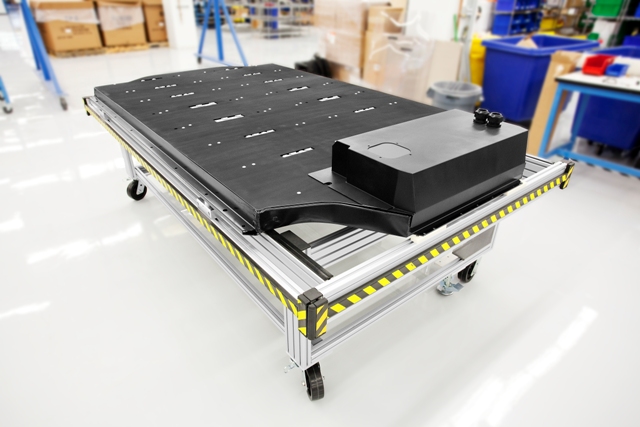When the possibility of new jobs clashes with the desires of powerful campaign contributors, sometimes jobs can take priority.
That may be what’s happening in Arizona, where a new bill in the state legislature would legalize the direct-sales model (as opposed to the dealership-network model) of electric-car maker Tesla Motors — to the intense dismay of state car dealers, who want it made permanently illegal.
A similar bill died in January. But now, Arizona has been named one of four finalists for Tesla’s planned “gigafactory” for the lithium-ion cells and battery packs it will need to expand its electric-car production within three years.
The Arizona move is significant because Tesla is facing challenges to its direct-sales model in several states across the nation. Last week, New Jersey said it would enforce a ban on direct sales of cars by manufacturers such as Tesla. State legislators in New York and Ohio are also considering updating existing laws that ban direct sales, and rules in Texas also ban such sales.
According to the Associated Press, Arizona House Bill 2123 would permit direct sales by automakers that manufacture solely electric vehicles and have a service center within state borders.
The bill was originally on a topic unrelated to auto sales, but was amended yesterday by State Senate Leader John McComish as a “pre-emptive strike” against future laws — similar to those introduced in several other states — to outlaw Tesla’s model.
Mike Gardner, a lobbyist for the Alliance of Automobile Manufacturers called Tesla’s model a “special exemption” and said the group opposed letting any automaker “go around the dealer network and sell directly to consumers.”
The group, he said, thinks “we should all be treated the same.” Tesla is not a member of the alliance.
Representative Warren Petersen (R-Gilbert), the bill’s original sponsor, called it a “great opportunity … to send a message that we welcome business and we welcome Tesla here to Arizona.”
Tesla presently has one Arizona showroom at which customers may not order cars online from the factory — they must return home to do that.
In January, House Bill 2059, introduced by Arizona State Senator John Kavanaugh would have legalized Tesla’s sales model, but the bill went absolutely nowhere.
Now it’s back in an amendment to a totally different bill — a tactic used in other states for legislation backed by auto-dealer groups to ban Tesla’s sales model.
The amendment seems unlikely to have happened without the state being one of four named by Tesla as candidates for its planned multibillion-dollar gigafactory.
Of the four states identified by Tesla (Arizona, Nevada, New Mexico, and Texas), two of them ban Tesla sales: Arizona and Texas.
Arizona State Senator Bob Worsley (R-Mesa), however, denied any connection, calling it “not a quid pro quo.”
Instead, he told the AP, the message is meant to be that Arizona “welcome[s] the opportunity to work with large successful companies with this size market cap.”
The goal of the gigafactory is to put manufacturing of battery precursor materials, the cells themselves, and the completed battery packs under a single U.S. roof. These components are meant to go into Tesla’s next-generation sedan and other future models.
The mid-sized sedan, known for now as the Model E, is expected to cost only $35,000 before incentives and have a 200-mile electric range. The massive plant is meant to produce its battery at a cost per kilowatt-hour 30 percent lower than Tesla’s lowest cost today.
Meanwhile, an committee approved Bill 2123 on a 3-2 vote. The legislation will now be reviewed by a second committee, and then will go to the full Senate for a vote.
Behind-the-scenes lobbying on the topic is likely to be intense.
This story has been slightly edited from original version.
This story originally appeared on Green Car Reports. Copyright 2014


